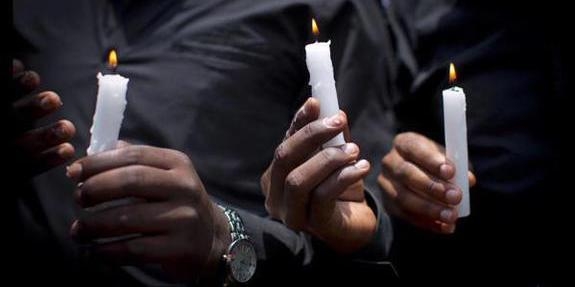The Kenya Television Network's award winning ‘Jicho Pevu’ team of investigative journalists that exposed scores of extrajudicial killings of ‘terrorism suspects’ by police may soon be unable to continue its work under new security laws in that country meant to criminalise the ‘broadcasting of information that undermines security operations’.
This news comes in the wake of the US Senate report on torture by the CIA of terrorism suspects, at least two of whom were illegally taken from Kenya with the help of the Kenyan authorities. One of the two reportedly still languishes in Guantanamo Bay.
Kenya’s role as a close CIA ally in this regard was also highlighted in a recent Channel 4 documentary about imprisonment without trial and torture of terrorism suspects in neighbouring Somalia, where the Kenyan and Somali armies, together with US and other Western advisers and technical personnel, are fighting the Islamist insurgents of Al-Shabaab.
In Kenya itself, at least ten executions and ten forced disappearances of ‘terrorism suspects’ over the past three years have been documented by Human Rights Watch. The Jicho Pevu team investigated many more, and has in the past three years assembled convincing evidence with regard to scores of young males killed or ‘disappeared’ by Kenyan counterterrorism police units. Their work was again vindicated by an Al Jazeera documentary that aired last week, which recorded a counter terrorism officer as saying that he had personally killed at least fifty ‘suspects’.
If passed by parliament, next week, the new laws would be able to penalise anyone reporting on such cases, since it would become an offence to “broadcast any information which undermines investigations or security operations relating to terrorism.” Strangely, it will also no longer be allowed to even publish photographs of victims of terrorism “without the consent of the National Police Service”. Both offences are proposed to carry a three year jail sentence, a large fine, or both.
Meanwhile, Al Shabaab militants continue to recruit more unemployed and resentful youngsters who feel abandoned by their own government from Kenya’s urban ghettos, to go fight in Somalia. Last April, after two grenade attacks rocked the predominantly Somali Eastleigh neighbourhood of Nairobi. Kenyan authorities responded by conducting raids on hundreds of Somali households and arresting even more Somali refugees. Most recently, the Kenyan government has complained about the Al Jazeera documentary, saying it was meant to derail Kenya’s efforts to fight terrorism.
The Jicho Pivo team made two documentaries about extrajudicial killings that were not aired by Kenyan TV. See them here and here.
Read more about the war on terror in Kenya in Chronicle article The strand of hair that sold me out.


